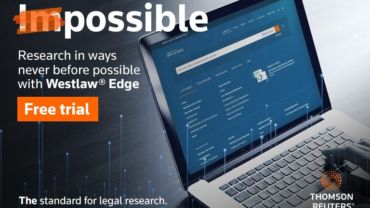Partnerships across the legal community are forming with the goal of expanding career opportunities and enhancing support for law students of color
As of the date of this article, the author is the outgoing Director of the Law Program at SEO.
Over the past 18 months, students from diverse backgrounds have borne witness, all too often, to a broken system of law enforcement amid a global pandemic, race-based hate crimes, and the continuing dehumanization of undocumented persons and refugees — all of which have put a spotlight on the stark inequities in our legal system that disproportionately impact communities of color.
As a result, students of color began applying to law schools in droves to address these problematic areas that, in many cases, affect them and their families quite personally. Those law schools that take these issues seriously, that address them privately and publicly, and that adapt policies and curricula to take these areas of concern into account will, undoubtedly, set themselves ahead.
In the past few years, there has been a rise in the kind of programming offered by law schools intended to support students from underserved and underrepresented backgrounds. While these students are fully capable of going far in their careers, they may have had limited access to key information and opportunities which may have benefited their more privileged peers. Additionally, many law firms have been proactive in creating mentorship programs for students to learn more about the actual practice of law to better close these information and opportunity gaps.
With these increased investments, students are able to build self-confidence and experience a more meaningful chance to thrive academically in law school and succeed in earning summer associate positions. To continue this trend, partnership across the legal community is at the core of expanding career opportunities to law students of color. Key proposals to enhance support for students of color during the pandemic and beyond are discussed below.
Increase internships targeting law students of color
Experience while in law school is imperative, and while these investments are not new, there is a need to expand access to key legal experience through internships. With the onset of the pandemic, it is easier to increase access because of the ability to offer internships virtually. To demonstrate, Sponsors for Educational Opportunity (SEO), an education nonprofit dedicated to increasing representation of students from underserved and underrepresented communities in business and law, worked closely with law firms to maximize the number of internship opportunities available and offer guidance on how to engage students during the virtual summer program.
Following a successful partnership with several firms in 2020, SEO helped increase internship opportunities at these firms by 50% in 2021, enabling its expansion across multiple markets, including Boston, Los Angeles, and San Francisco, while expanding into a new market in Miami.
Expand usage of digital tools for learning and networking
The wide adoption of expanded technology tools during the pandemic and the fact that Gen-Z law students were born after widespread usage of the internet in the late 1990s make the increased use of digital tools for career experience programs and learning a necessity. One of the key reasons SEO was successful in boosting its offerings to more students across more cities was cost effectiveness and scalability in the use of digital work tools. For example, it transitioned its annual Career Conference to an online format using the platform Hopin, which resulted in four times as many attendees than when the event was held in-person.
SEO also expanded its use of Zoom, which its Law Program had adopted prior to the pandemic in 2017, to include rounds of networking rotations through breakout rooms and a variety of different types of meetings, formats, and group sizes to keep the experience stimulating.
Provide assistance with law school admissions
Another opportunity to extend support to potential law students of color and to continue the trend of increased enrollment in law schools is by addressing the barriers that students face during the application cycle. For example, SEO launched a new program, Catalyst, with the support of its partner law firms, to provide students from underrepresented backgrounds a cohort-based LSAT course, admissions workshops and private admissions counseling, personalized conversations with admissions officers, and attorney mentorship through its Catalyst-sponsoring firms, including Kirkland & Ellis, White & Case, Latham & Watkins, and Allen & Overy.
Offer services to maintain student well-being
Throughout educational, networking, and internship opportunities, placing significant emphasis on mental health and wellbeing is a must. Indeed, holding sessions regularly to provide students with a chance to reflect on their experiences on their own and with each other helps to open up these conversations and reinforces vulnerability and empathy, key skills needed for today’s lawyers.
Partnerships like those that SEO has developed with other legal community organizations are needed and easier to deliver more than ever. Moving forward, these partnerships for students of color are likely to look different than they did pre-pandemic because of the normalization of hybrid and remote offerings to expand the reach to as many students as possible. In fact, SEO has also launched new programs recently as part of its Leadership Institute to provide ongoing development to alumni, customized for each stage of their career, as well as the SEO Tech Developer, which propels Black, Hispanic, and Native American computer science and engineering college students to the next level of technical and problem-solving skills.
Collaboration among legal community institutions is critical to the ongoing delivery of high-impact programs to close the national educational and career opportunity gap for those participants who have been historically excluded and allowing them to gain access to economic capital and ascend to positions of influence and power.
You can find more information on the SEO Law Fellowship or Catalyst Programs here.







